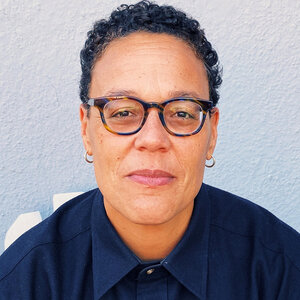Jewish philanthropy must adopt a racial equity lens

The past few years have seen struggles for survival in multiple dimensions: life and death, long-term physical health, mental health, political freedom, the ability to be housed or to feed a family. In the wake of political unrest and the ongoing impact of the pandemic, it has become even clearer that we still have a long way to go in the United States to reach the racial equity ideals for which we strive. Early in the pandemic, Indigenous, Latino/e/x, Asian and Pacific Islander, and Black Americans all had significantly higher mortality rates from COVID-19 than white people did. Asian and Pacific Islanders were subject to an increased number of hate crimes and discrimination. Through it all, Black Americans marched again against murders at the hands of police.
The Jews of Color Initiative focuses on creating systemic change in the Jewish community by bringing a racial equity lens to all aspects of the Jewish institutional ecosystem. From our perch, we have seen again and again good intentions failing to lead to systemic change.
Among U.S. Jews, an estimated 12 to 15 percent self-identify as people of color, and these numbers are likely higher for Jews ages 18 and younger. The last couple of years have brought into stark focus the need to center equity in our public and private lives, as well as within the Jewish community, so we can serve the true diversity of the community. To that end, the Jews of Color Initiative, in partnership with Slingshot, has produced a new guide to Jewish philanthropy—Racial Equity-Informed Philanthropy: A Funder Resource from a Jewish Perspective (94 pages, PDF)—to help rethink Jewish communal funding through a racial equity lens.
Our 2021 Beyond the Count report found that expressions of Jewishness for Jews of Color (JoCs) were most frequently connected to a sense of justice and equality—with 76 percent of respondents stating that these principles were “very important,” followed by “passing on Jewish identity to the next generation,” identified as “very important” by 67 percent of respondents. Taken together, the Jewish community is clearly intent on teaching and moving the next generation of Jews toward a proudly Jewish, more equitable and just future. The question is How?
Power and privilege are concepts that are part of mainstream discussions of race and racism. Working to dismantle the systems that keep power and privilege in the hands of those who have historically held it requires courage and a passion for justice. To create widespread change, those who hold that power and privilege need to commit to being curious, connecting with others, and playing an active role in creating a new vision for an equitable future.
Philanthropic engagement is more than an expression of doing good; it is a resource-fueled, strategy-informed commitment to create communal change.
As a Cohort 3 Schusterman Fellow, I had the privilege of working with Slingshot CEO Stefanie Rhodes. Connected by shared values and vision, as well as passion for philanthropy, we joined organizational forces to create the guide. Slingshot’s passionate dedication to engaging young Jewish philanthropists in order to make a lasting impact on the Jewish community and beyond is a natural partner for the Jews of Color Initiative’s work engaging funders at the intersection of philanthropy and racial equity and justice. Our collaboration invites funders and philanthropists to infuse their work with knowledge and actions that center racial equity and embody Tikkun Olam (“repair of the world”), at times nudging leaders to explore, examine, and imagine Jewish philanthropy that centers racial justice within the Jewish community.
Authored by Jewish communal leaders in philanthropy, education, leadership, U.S. history, and Jewish text, the guide’s authors offer conceptual frameworks about justice and equity, along with rich historical context to ground readers in a common understanding of the history of race and racism in the U.S. Alongside this framing, the guide provides tools informed by Torah and Jewish wisdom to help link equitable philanthropy to who we are as Jews, and also models a vision of brilliant and diverse leadership. The contributors to this guide represent some of the smartest, deepest thinking in and about our community, and their powerful analyses offer important skills and tool sets not only for those in the philanthropic space, but for all leaders.
Philanthropy can serve as a catalyst to inspire people and organizations to take specific actions. It is simultaneously a tool of support, of partnerships, of empowerment, and even of accountability. When implemented with intentionality—such as by building in racial equity and justice goals, objectives, and consequences when we fall short—philanthropy can energize an ecosystem and an entire community.
Our guide invites philanthropists to embody racial equity and justice-informed postures and practices in every facet of their work. By embodying—integrating into our beings—a vision for a more just and equitable future, and utilizing racial equity-centered skills and tools to achieve that vision, we collectively move closer to the meaningful actions that create lasting, structural change.
Ilana Kaufman is CEO of the Jews of Color Initiative.




